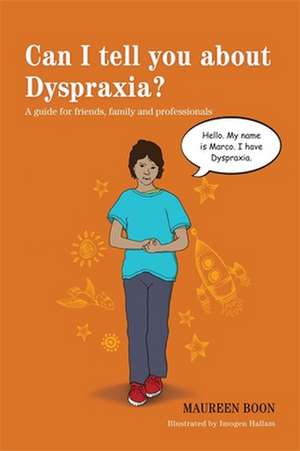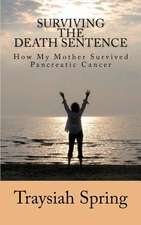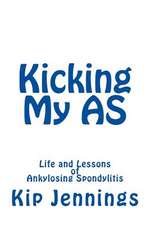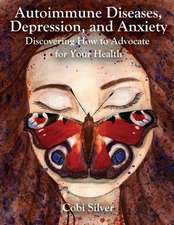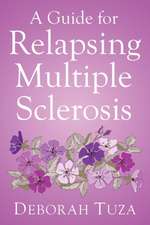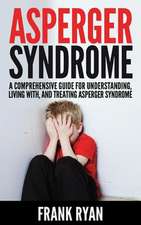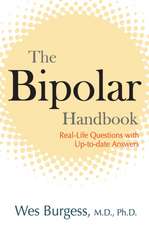Can I Tell You about Dyspraxia?: A Guide for Friends, Family and Professionals: Can I Tell You About...?
Autor Maureen Boon Ilustrat de Imogen Hallamen Limba Engleză Paperback – 27 mar 2014 – vârsta de la 8 până la 12 ani
Din seria Can I Tell You About...?
- 5%
 Preț: 67.96 lei
Preț: 67.96 lei - 18%
 Preț: 72.61 lei
Preț: 72.61 lei - 18%
 Preț: 72.33 lei
Preț: 72.33 lei - 18%
 Preț: 72.24 lei
Preț: 72.24 lei - 18%
 Preț: 72.61 lei
Preț: 72.61 lei - 18%
 Preț: 72.87 lei
Preț: 72.87 lei - 18%
 Preț: 72.33 lei
Preț: 72.33 lei - 18%
 Preț: 72.96 lei
Preț: 72.96 lei - 18%
 Preț: 72.68 lei
Preț: 72.68 lei - 18%
 Preț: 72.24 lei
Preț: 72.24 lei - 18%
 Preț: 72.61 lei
Preț: 72.61 lei - 18%
 Preț: 72.68 lei
Preț: 72.68 lei - 18%
 Preț: 73.14 lei
Preț: 73.14 lei - 18%
 Preț: 72.96 lei
Preț: 72.96 lei - 18%
 Preț: 73.05 lei
Preț: 73.05 lei - 18%
 Preț: 73.49 lei
Preț: 73.49 lei - 18%
 Preț: 72.68 lei
Preț: 72.68 lei - 18%
 Preț: 72.24 lei
Preț: 72.24 lei - 18%
 Preț: 72.68 lei
Preț: 72.68 lei - 22%
 Preț: 69.49 lei
Preț: 69.49 lei - 19%
 Preț: 70.91 lei
Preț: 70.91 lei - 19%
 Preț: 71.80 lei
Preț: 71.80 lei - 15%
 Preț: 78.48 lei
Preț: 78.48 lei - 19%
 Preț: 70.91 lei
Preț: 70.91 lei - 22%
 Preț: 68.63 lei
Preț: 68.63 lei
Preț: 72.68 lei
Preț vechi: 88.63 lei
-18% Nou
Puncte Express: 109
Preț estimativ în valută:
13.91€ • 14.52$ • 11.51£
13.91€ • 14.52$ • 11.51£
Carte disponibilă
Livrare economică 15-29 martie
Livrare express 01-07 martie pentru 31.54 lei
Preluare comenzi: 021 569.72.76
Specificații
ISBN-13: 9781849054478
ISBN-10: 1849054479
Pagini: 55
Ilustrații: 17 black & white illustrations
Dimensiuni: 150 x 228 x 6 mm
Greutate: 0.14 kg
Editura: Jessica Kingsley Publishers Ltd
Seria Can I Tell You About...?
ISBN-10: 1849054479
Pagini: 55
Ilustrații: 17 black & white illustrations
Dimensiuni: 150 x 228 x 6 mm
Greutate: 0.14 kg
Editura: Jessica Kingsley Publishers Ltd
Seria Can I Tell You About...?
Notă biografică
Maureen Boon recently retired as Headteacher of Vranch House, an independent school for children with physical disabilities in Exeter which provides therapeutic interventions for children with movement and associated disorders such as cerebral palsy and dyspraxia. She has worked with children with movement disorders for over thirty years, and previously taught in primary schools. She is the author of Understanding Dyspraxia: A Guide for Parents and Teachers, also published by Jessica Kingsley Publishers. Imogen Hallam studied illustration at Plymouth University and has worked on a variety of images for children's fiction and educational publications. She lives and works in Devon.
Cuprins
Introduction. 1. What it's like to have dyspraxia. 2. Getting dressed and changed. 3. Going to secondary school. 4. Before I went to school. 5. Early signs of dyspraxia. 6. Difficulties at primary school. 7. Going for an assessment. 8. Therapy groups. 9. Handwriting and fine motor skills. 10. Getting organised for school. 11. Sport. 12. Maths and Science. 13. Some facts about Dyspraxia. 14. How parents can help. 15. How teachers can help. 16. How other children can help. Recommended reading, websites and useful organisations.
